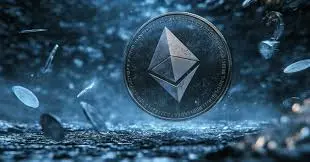Synthetix founder: Once mainstream Layer 2 tokens are launched, the situation of public chains will quickly reverse
Source: Kain Warwick Twitter
Organized by: Nianqing, Chain Catcher
Recently, Kain Warwick, the founder of Synthetix, had a heated debate with Su Zhu, co-founder of Three Arrows Capital, regarding the development of public chains. Kain Warwick expressed that many people he respects pursue opportunistic gains at the cost of their reputation for maximum profit, while Su Zhu believes that Ethereum's gas fees have become too expensive for ordinary users, thus necessitating strong support for public chains like Solana and Avalanche, which sparked extensive discussions among industry KOLs.
Today, Kain Warwick once again tweeted in support of the Ethereum ecosystem and scaling solutions. He believes that as most ETH infrastructure migrates to L2 at the beginning of next year, and Layer 2 projects issue tokens, the emerging ecosystems will find it hard to compete with Ethereum.
Below is the full text of Kain Warwick's tweet:
The discussion around "Ethereum is too expensive" has become a meme, and there has been so much noise surrounding this meme that few people notice we can continue to stay within the Ethereum ecosystem while paying less gas fees.
Many people will attack me saying, "You are too wealthy, but we can't afford Ethereum gas fees; you don't care about real users," etc. But in fact, Synthetix is built on the Ethereum ecosystem, and high gas fees hinder its growth.
There are many projects in the Ethereum ecosystem working on scaling through sidechains, Rollups, ORUs, ZK, etc., such as Polygon, Arbitrum, Optimism, or StarkWare. L2 is much cheaper than L1, and Ethereum has more opportunities and potential because of its scaling solutions.
While it is unreasonable to ask users to wait for scaling solutions to mature, many are investing their emotions and money in public chains labeled as "Ethereum killers" like BSC, AVAX, or SOL, but this situation may soon be reversed. As most ETH infrastructure migrates to L2 at the beginning of next year, these emerging ecosystems will find it hard to compete with Ethereum. We have already seen the adoption rates of DeFi projects deployed on Optimism increasing weekly.
Most people who have moved to "Ethereum killer" public chains cannot accept that many in the Ethereum community genuinely support decentralization, rather than just caring about Ethereum's price. Because many do not care about ideals like decentralization, but merely opportunistically seek maximum value.
I noticed SOL early on, even earlier than most, but I did not invest in these ecosystems, even though I knew the SOL token would eventually be worth millions. This would undermine my faith in Ethereum, and I want to ensure that we do not make poor trade-offs while building these systems.
I believe that most of the advantages of ETH killers like AVAX are currently hidden trade-offs that are creating debts due next year. While the market will address this issue, the risks are too great. In my view, the funds flowing into ETH killers represent a misallocation of resources.
As market participants, I urge people to unite within the Ethereum community to do more meaningful things for new users on L2. I believe that more and more users will recognize the significant advantages of L2 because of a group of outstanding builders, not just because they support decentralization.
Once we have Rollup tokens (like Optimism, StarkWare, etc.), we will have a very powerful counter-narrative. It will create enough incentive for new users to try Rollups and help guide awareness and activity around these new public chains.










